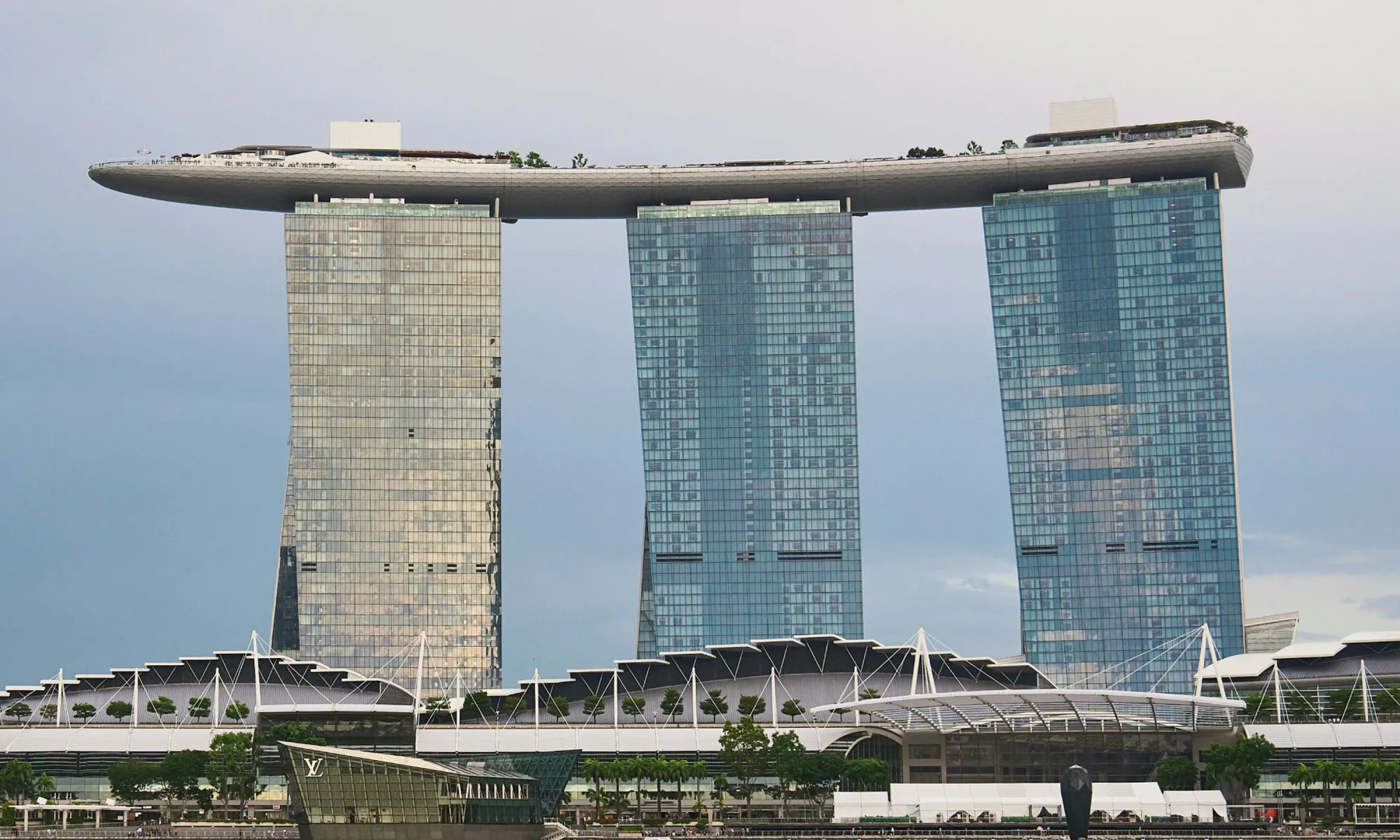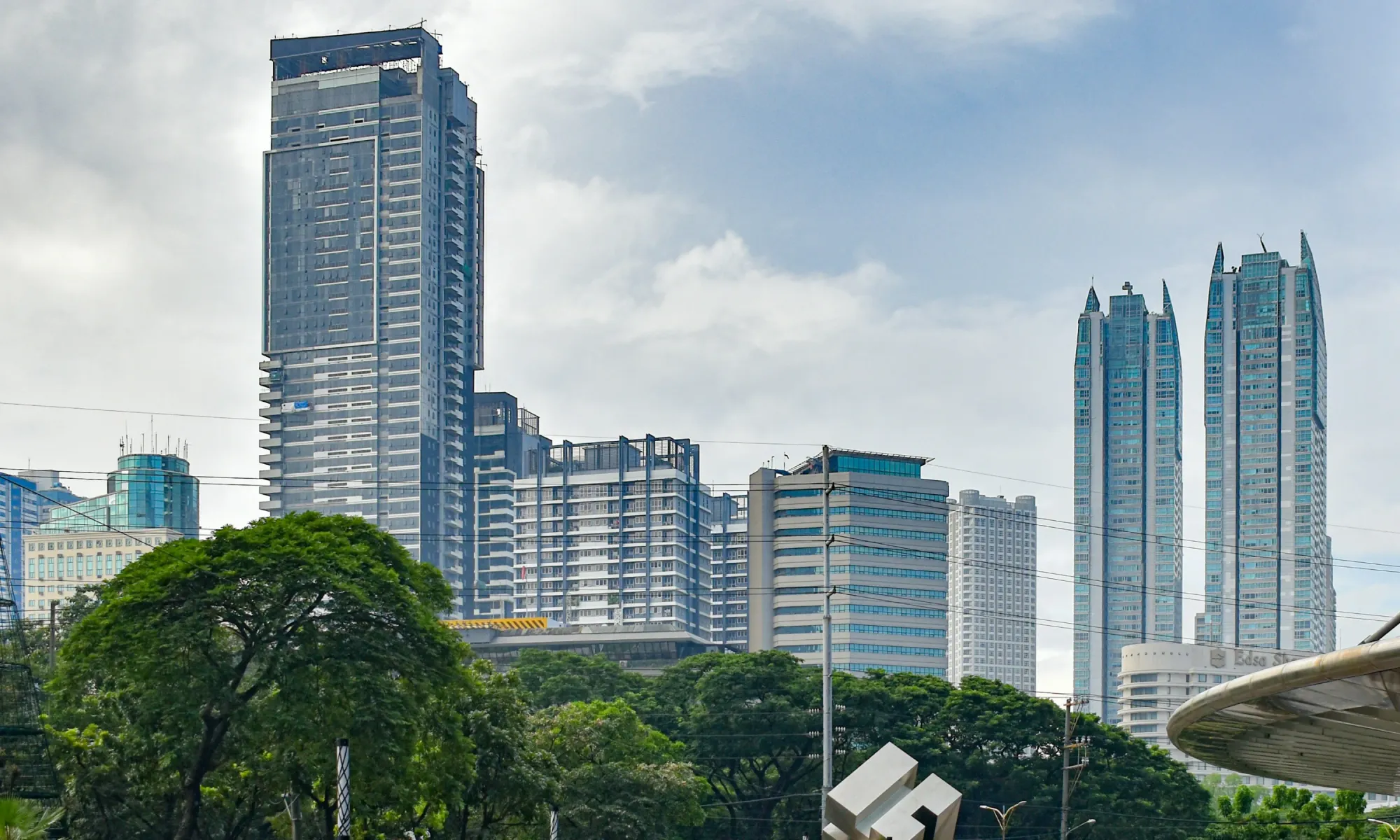Real Estate Tokenization in Southeast Asia: Who’s Leading?

Real estate tokenization is a new way to buy and sell parts of buildings and land on a blockchain. In simple terms, it means turning a property into a digital token, so people can own a small share without needing a lot of money. As one report explains, tokenization is “converting the value of a physical property into digital tokens on a blockchain platform, each token representing a fractional ownership stake”. This creates more chances for people to invest in expensive homes or offices, because they can buy just a little bit through tokens.
In Southeast Asia, interest in tokenized real estate is growing fast. Regulators and businesses across the region — especially in Indonesia, which already has a live regulatory sandbox— are working to make it happen. For example, Singapore’s central bank and securities regulator has launched trials like Project Guardian and is building new frameworks to support tokenized assets. Similarly, Thailand’s financial authorities are easing rules so ordinary people can buy digital tokens backed by property. In the Philippines, the government is testing tokenized bonds and building digital platforms to sell them to consumers. With projects underway in multiple countries, we look at which nations and companies are leading the way in property tokenization – and why local regulators are key to the trend.
Indonesia: Sandbox Pioneer and Digital-Currency Foundations

Indonesia has rapidly become one of the region’s most advanced token-asset markets. In December 2024 Otoritas Jasa Keuangan (OJK) launched a dedicated Regulatory Sandbox for property tokenization and admitted its first entrant, GORO, a fractional-ownership platform whose assets under management jumped 350 % in 2024 and now serve 100 000-plus users.
Since January 2025 OJK has also taken over national oversight of all crypto and digital-asset activity and is already testing four real-world-asset pilots (property, gold, sovereign bonds and NFTs) inside the sandbox, signalling that tokenization is moving “from experiment to mainstream.”
The private sector is matching that push. Tokenize Indonesia—an accelerator backed by Saison Capital and BRI Ventures—runs proof-of-concepts with major banks and telcos and sizes the domestic tokenization market at US$88 billion by 2030.
Finally, Bank Indonesia’s Project Garuda finished a wholesale Digital Rupiah proof-of-concept in January 2025, demonstrating real-time issuance and transfer on Corda and Hyperledger. Analysts expect the Digital Rupiah to become the settlement rail for tokenized securities, including real estate.
Together these moves—formal sandbox, dedicated supervisor, live CBDC roadmap—put Indonesia ahead of its neighbours in converting tokenization rhetoric into products retail investors can actually buy.
Singapore: Token Platforms and Greenlight from Regulators

In Singapore, the market is led by a few specialized platforms and a supportive regulator. One such platform is Fraxtor, a company that lets wealthy investors co-own foreign properties through token shares. Fraxtor’s CEO explains that on their platform, each investor “owns tokens which represent an economic interest in the underlying asset”. In mid-2024 the company made headlines when it dual-listed a tokenized real estate fund on both a Singaporean and an Australian exchange. The offering sold out in just two hours, showing strong demand for this new format.
Fraxtor is licensed by Singapore’s Monetary Authority (MAS), reflecting official approval for its blockchain model. Experts at a real estate seminar noted that Singapore’s regulators “are very supportive” of tokenization and are planning the infrastructure to make these tokens tradeable. In fact, MAS has unveiled plans to build industry networks and technical frameworks so that tokenized assets – not just real estate, but also bonds and funds – can be bought and sold more easily. As CoinDesk reports, MAS will form new partnerships with banks like Citi, HSBC and UOB to deepen the market for tokenized assets.
Singapore platforms are mostly aimed at accredited and wealthier investors for now. Currently only people with high income or net worth can invest through Fraxtor, Knight Frank’s senior director noted. But industry insiders say this could change as the technology matures. One consultant hopes regulators will eventually allow ordinary retail investors to enter this space, saying “regulators are very supportive” and will help build the trading platforms. In short, Singapore is moving carefully but steadily, using its strong financial rules and connections to push tokenized real estate forward.
Thailand: Early Projects Meet New Rules

Thailand has become a testing ground for real estate tokenization. The country’s biggest banks and financial firms have jumped in. For example, Kasikorn Bank (KBank) and Siam Commercial Bank (SCB) are actively developing token projects with the Thai SEC (Securities and Exchange Commission). KBank even bought a crypto exchange and set up a $100 million venture fund for web3 ventures, showing it aims to build a broad crypto ecosystem. SCB has its own token arm called Token X, which offers end-to-end services for creating digital securities.
One notable pilot is RealX, Thailand’s first property-backed digital token. A leading condominium developer, Origin Property, teamed up with a digital investment firm (Real Estate Exponential) and Token X to launch RealX tokens. These tokens make 361 units of luxury city condos available in tiny pieces. At one press conference, the CEO of Origin explained that each RealX token represents about one square inch of a condo. In other words, people who could never afford an entire unit can invest just a little bit by buying these tokens. As Real Estate Exponential’s CEO noted, blockchain makes it possible for retail investors to access expensive real estate now.
The RealX project is following the rules set by Thailand’s SEC. Token X’s CEO confirmed that the RealX offering is “in the regulatory process” with the SEC. If approved, RealX will have a public ICO (token sale), with a hard cap on price per investor as required. In early 2024 the Thai SEC also lifted a previous cap on how much a regular person can invest in real-estate tokens. Under the old rule, retail investors could only put up to 300,000 baht ($8,500) into these projects. That limit was removed to let everyday people buy more real estate tokens. This shows the Thai regulator sees real estate tokenization as a way to boost the economy and help residents invest.
Behind these projects, Thailand’s government is broadly friendly to crypto and blockchain. The country has a new prime minister (a former real estate tycoon) who is himself active in digital tokens, and the financial authorities have given special treatment to infrastructure token projects. In short, Thailand combines ambitious pilots like RealX with clear regulatory signals. Local experts say the banks and developers are working with the regulators on solutions, not around them. As one tokenization pioneer put it, success comes only when you “work hand-in-hand with the regulators” to make the market safe.
Philippines: Government Bonds and Retail Access

The Philippines is taking a slightly different path by using tokenization in public finance first. A few years ago the Philippine government began issuing tokenized bonds for institutions. More recently it moved to allow smaller investors to buy digital government debt. In late 2024 the Bureau of the Treasury announced plans to sell one-year treasury bonds via GCash (a popular wallet app) and PDAX (a local crypto exchange). This means millions of Filipinos can use their phones to buy government bonds, something that was never easy before. The Finance Secretary Ralph Recto said this will make bond investing “no longer a luxury but a new normal” for Filipinos – “just a few swipes away, as easy as ordering… food delivery”. This program is actually a form of tokenization (each bond can be held in digital tokens), and experts say it has cut costs and barriers for retail buyers.
This embrace of tokens extends to other areas. The Philippines has a high level of crypto use (think “**Blockchain” games like Axie Infinity), and local banks are active in Web3. For example, Union Bank – one of the biggest banks in the country – runs a blockchain lab and has supported token-based projects. As one report notes, Union Bank is “one of the most active financial institutions spearheading stablecoin and tokenization” in the country. In practical terms, that means Filipino investors can now find tokenized investment products on local platforms. Combined with the government bond example, the Philippines is building a “minimum viable ecosystem” for token finance, including exchanges, wallets, and clear rules.
Philippine regulators have been part of this push. Aside from the treasury’s bond program, the central bank and securities commission have looked at token markets for securities and digital banking. They have set up special sandboxes to test blockchain apps and have given licenses to crypto firms that comply with rules. The results so far look promising: the first small batch of retail tokenized treasury bonds was almost entirely snapped up by individual investors. In fact, more than 85% of one token bond issuance was bought by ordinary people. This shows a strong local appetite. With FinTech firms, regulators, and banks all working together, the Philippines aims to make tokenized assets (even real estate in future) widely available to its population.
Regulators as Engines of Growth

Across Southeast Asia, regulators are often driving tokenization rather than blocking it. Governments here see tokenized assets as a way to modernize finance and grow investment markets. In Indonesia, Singapore, Malaysia, Thailand, and the Philippines, officials are building frameworks and even giving tax breaks to encourage digital securities. As Chainwire reported after a recent summit, Singapore had brought in over 40 institutions under Project Guardian to trial token markets. Now MAS is helping participants move from sandbox pilots to real products. Similarly, Indonesia’s regulators have already launched a formal sandbox, assumed national oversight of crypto markets, and tied tokenization to the forthcoming Digital Rupiah so that Southeast Asia as a whole becomes a “global hub” for tokenization.
In Thailand, the SEC’s recent rule changes – like removing investment limits – show an official push to let retail investors buy tokenized real estate or infrastructure projects. And the current Thai government has even planned to give citizens digital wallet credits, signaling that blockchain is important at the highest level. In the Philippines, regulators have announced clear plans to distribute token bonds through familiar apps, working with big companies like Ant (GCash’s owner) and local exchanges. All these actions by regulators help explain why tokenization is moving so fast in this region.
Experts say such support is crucial. As EY points out, tokenization faces challenges like regulation and education, so having clear government guidelines helps build trust. Thailand’s token pioneers agree – one CEO stressed that without co-creating solutions with the SEC, no token project could succeed. In other words, banks and startups need the green light and cooperation of regulators. Southeast Asian regulators appear to be giving that cooperation.
Long-term growth matters too. Our forward-looking piece outlined the trends that could push tokenized assets past the trillion-dollar mark by 2030, and the regulatory moves in Southeast Asia fit exactly into that forecast: clear rules, public-private pilots, and everyday access for small investors.
In sum, Southeast Asia is quickly becoming a hotspot for tokenized real estate. Singapore leads with institutional-grade platforms and pilot programs in collaboration with MAS. Thailand offers bold first projects like RealX and is easing rules to welcome investors. The Philippines is building the rails for mass adoption through tokenized bonds and popular mobile apps. Throughout the region, regulators have signaled support and provided frameworks – often becoming the drivers of this innovation. This strong public-private cooperation in Southeast Asia means the region is poised to co-lead the global real estate tokenization movement, opening new paths for liquidity and investment access across property markets.
Stay informed.
Subscribe to blog.tokenizer.estate for expert insights, real-world case studies, and the latest updates in real estate tokenization 🏠

